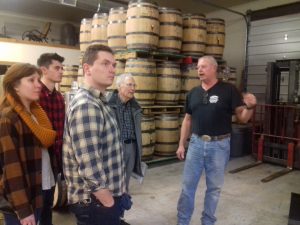By Matthew Tsui
If you are a recent college graduate like me, you are likely 1.) looking for a job or 2.) considering graduate school or maybe 3.) want to travel or 4.) just something to pay off those darn school loans! Sound familiar?
However, how could you possibly do all these things? How could you even decide?
A month later after graduation, I received an email from my International Agriculture professor. The email advertised an AmeriCorps program called RARE, which is an acronym for Resource Assistance for Rural Environments.
I looked through their website and discovered that I could:
- Do a full-time 11-month term of service projects related to Community Planning, Community & Economic Development and/or Natural Resource Planning Food Systems
- Get a headstart with 9 graduate credits toward a Master of Community and Regional Planning
- Work and live in a rural community in Oregon
- Be awarded an education award to help pay off loans after the AmeriCorps service
One problem. I had accepted a 6-month research job in Arizona, which conflicted with upcoming term of service. My research job ended in October. The RARE AmeriCorps service starts in September. I thought there would be no way I would be accepted into the program or even get an interview.
Enter my savior and the RARE Program Coordinator, Titus Tomlinson!
Once I had been accepted into the program, Titus tirelessly coordinated with RARE staff and City of Umatilla (my host community) to customize the starting and ending dates of my term of service to fit my schedule. Titus and I communicated over phone where he listened to my endless concerns: moving to a new town, away from family, adjusting to a new culture, etc.
Titus’ help during my application process is evidence of a trend I feel every day during my RARE service:
Titus, the RARE Program Coordinator and the host community want to provide you with tools, assistance and their time to help you grow as a professional.
Are you Interested in RARE? Click HERE to learn more about serving with the RARE AmeriCorps Program!
A little bit about Matthew Tsui:
- Matthew Tsui is a recent Penn State University graduate. He is currently serving as the GIS coordinator/Recreation Planner with the City of Umatilla in Umatilla, Oregon.
- People may be surprised that I am huge college football fan.
- My most significant accomplishment, thus far, was growing vegetables at urban farm called Heritage Farm for Philadelphia families faced with the challenges of poverty
Does community development work interest you? Are you looking for a life changing experience in rural Oregon? Learn more about serving with the RARE AmeriCorps Program via our website: https://rare.uoregon.edu/

